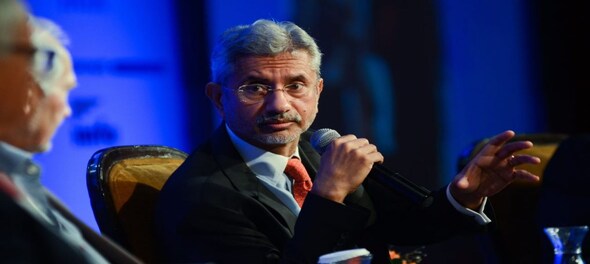
India’s ranking in various global economic and commercial metrics may have improved significantly in the past few years, but it’s time to really put the foot on the gas if India is to remain one of the fastest growing economies in the world and achieve the $5 trillion economy target by 2025. And the way to do that is to increase focus on making India a manufacturing super-power. That’s the word coming in from External Affairs Minister S Jaishankar.
He was speaking at the launch of G20 Sherpa Amitabh Kant’s latest book ‘Made In India: 75 Years of Business And Enterprise’.
This will mean a shift in strategic planning by both businesses and policy-makers. This larger strategic direction to doing business, he emphasises, will be critical, as it will move India to an environment in which it has clearly identified and understood its partners, and their strengths and weaknesses.
Of more importance, he pointed out, is that India now finds itself in a world that is becoming increasingly polarised, which makes diplomacy difficult. “But this is a window of opportunity for India, as smart business moves can open up many opportunities,” he said.
This kind of a shift in thinking and approach, he reasoned, will also led to much stronger businesses within India, which can have larger ramifications and advantages. “Strong business is a critical segment of national security,” he explained, adding that this will be challenging, given India has to navigate and fuel growth in not just a much more volatile world, but in one that is decarbonised.
Jaishankar admitted that foreign policy will play a crucial role in the thrust to make India a manufacturing giant that’s more than just a vital cog in the global industrial complex’s supply chain. But the inverse is also equally important, he believes. “A good foreign policy needs deep strength, Make In India, and an Atmanirbhar Bharat,” he said.
Jaishankar pointed out that the India story is undeniable, led by game changers like increased formalisation of what were largely informal sectors, digitisation, and enhanced grass-root delivery models being put into effort. However, with the pandemic and its resultant economic stress largely behind us, the focus is shifting to ‘derisking’ India from such negative external stimuli.
That’s where self-reliance, or an Atmanirbhar Bharat comes in. But it has to be an Atmanirbhar Bharat that the world is nirbhar (reliant) on. “We are today moving to a policy of delivery; the politics of delivery is reshaping the country,” he said, adding, “building a resilient supply chain is the great manufacturing opportunity for us.”
Also read: Taking the eyes off terrorism would be detrimental to security interests: Jaishankar at SCO
Building India a stronger manufacturing establishment will also mean an India that is moving away from the traditional image of that of a service provider. “We need to get our focus back on manufacturing. The focus on services was an elegant excuse for not being good at manufacturing. If we are to sustain and take the economy to a different level, we have to be a serious manufacturing power,” he said.
But Jaishankar was also quick to admit that there are challenges and pitfalls to this approach. Surmounting these challenges, he believes, will involve a lot of introspection, bold thinking, the confidence to not be swayed by others’ opinions, and not giving in to fuelling growth by giving foreign players an unfair advantage. Some of this, he said, has already been happening at the policy-making level. “I am so glad we didn’t listen to most of the economic advise we received during the pandemic,” he said.
The process, however, will be a long one, he warned, and cannot happen overnight. “We have to be careful not to deindustrialise India,” he said. This will mean careful calibration of government policies. “We should still keep giving thought to the reforms which have not been done yet,” he added.
First Published: May 10, 2023 9:03 PM IST
Check out our in-depth Market Coverage, Business News & get real-time Stock Market Updates on CNBC-TV18. Also, Watch our channels CNBC-TV18, CNBC Awaaz and CNBC Bajar Live on-the-go!


Supreme Court says it may consider interim bail for Arvind Kejriwal due to ongoing Lok Sabha polls
May 3, 2024 4:57 PM
10% discount on fare on Mumbai Metro lines 2 and 7A on May 20
May 3, 2024 2:40 PM

